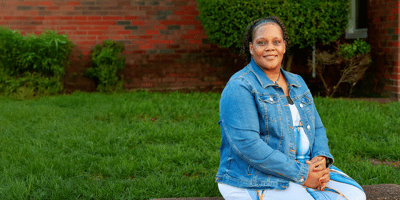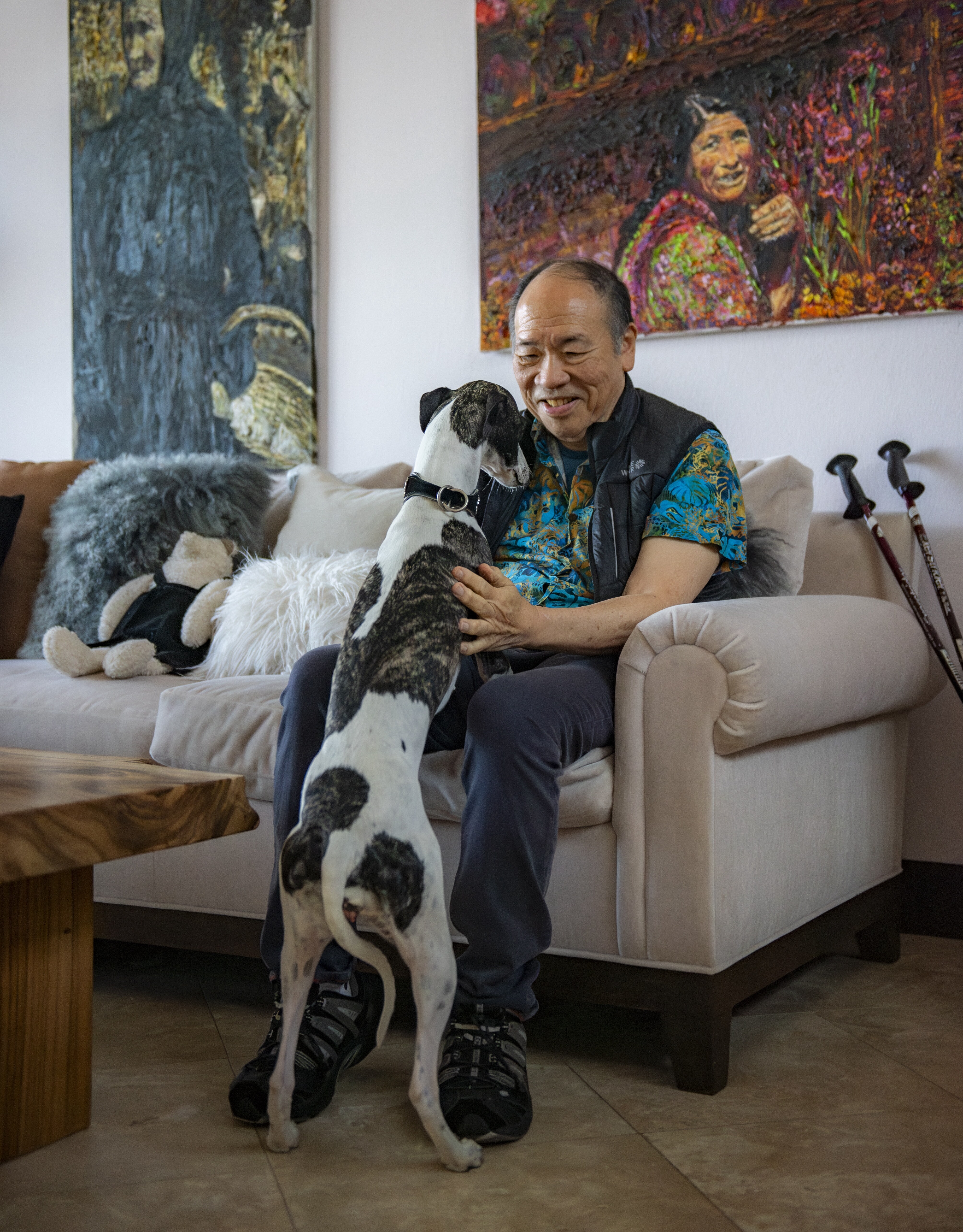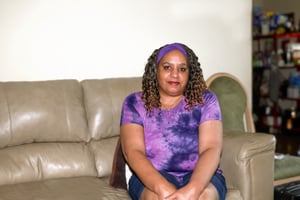
Survivor Stories
Meet
Ed
Edward Wong, MD, found himself in an unexpected situation. “I was sitting in front of the television, and I began having numbness on the right side of my face,” he said. His medical training kicked in as the numbness spread to his right hand and leg.
He immediately recognized the symptoms of stroke and knew he needed to act quickly. “It’s crucial to get to the hospital within a few hours of the stroke onset,” he says. Within minutes, Dr. Wong was in an ambulance headed to the hospital.
Connecting with Kandu
After being treated in the local emergency room, Dr. Wong was transferred to Cedars-Sinai Medical Center in Los Angeles. His doctor at Cedars-Sinai encourages all of her patients to join Kandu’s stroke recovery program, and Dr. Wong was no exception.
While he thought Kandu sounded interesting, Dr. Wong wasn’t sure he needed it. As an emeritus professor at University of California, Irvine School of Medicine, his specialties included Neuro-Ophthalmology, Ophthalmology and Neurophysiology. “I trained as a neurologist for a year in London studying stroke,” he explained. “I’ve written papers on strokes, and I’ve seen patients with strokes.”
However, after learning more about Kandu, he felt like it could not only help him manage his recovery but also help him prevent a second stroke. “You don't want to have a second or a third stroke because every time the effects are additive."
When he started the program, Dr. Wong was introduced to Puja, his Kandu Navigator. Puja encouraged him to take part in Kandu’s virtual connect groups for stroke survivors.
The connect groups have been an important part of his recovery. “I was fascinated by the stories other survivors shared in the Kandu Connect Groups,” he reflects. “I learned so much by listening to the survivors tell me what they experienced.” Unless he’s traveling, he doesn’t miss a meeting.

"If the doctor is being very intent on helping their patient, they'll realize that it's not always easy for the patient to tell you exactly how he or she feels. But I think Kandu bridges that– it gives a chance for the patient to know that maybe their symptoms are important and they can talk to the Kandu staff and be encouraged to go see other doctors."
Dr. Wong
Retired Professor Emeritus and
Chief Executive Officer
Reducing the risk of a second stroke
Dr. Wong is thankful that he did not have many residual effects from his stroke, but he is determined to avoid having another stroke. “A second or third stroke can be devastating,” he says. “I realized that my diet and the stress set me up for my first stroke.”
Despite feeling healthy before his stroke, Dr. Wong realized there were more lifestyle changes he could make to help prevent another stroke. “I don’t eat anything with sugar, stay away from red meat, and keep my weight down,” he explained. “My blood pressure is under control.”
 Dr. Wong has always prioritized staying active. Even before his stroke, he swam regularly. Now, he continues to make exercise a key part of his routine, with exercise equipment set up at home to make sure he doesn’t miss a workout. He also began focusing on managing his stress levels. He took a stress management class, and through that, he feels he has learned to manage his stress and delegate more at work.
Dr. Wong has always prioritized staying active. Even before his stroke, he swam regularly. Now, he continues to make exercise a key part of his routine, with exercise equipment set up at home to make sure he doesn’t miss a workout. He also began focusing on managing his stress levels. He took a stress management class, and through that, he feels he has learned to manage his stress and delegate more at work.
“You don’t have to rush to do things,” he says, having learned more about how stress can increase the risk of stroke. “You really realize that every moment is precious.”
Understanding the patient experience
Dr. Wong’s experience with Kandu has helped him understand the complexities of being a stroke survivor. Through his conversations with Puja, Dr. Wong recognized he could still learn more about the patient experience. "There is a difference between taking care of a stroke survivor and being one; you have to listen to both sides of the story."
“There’s a lot that you don’t realize when you’re taking care of stroke patients,” he remarked. Meeting other survivors and hearing their stories has changed how he thinks about patient care and what it means to be a stroke survivor. "They give me a lot of insight into what they're suffering from and I personally feel that you really don't understand, as a physician, what is happening until you have the problem yourself."
Dr. Wong continues, "Many of the stroke survivors have no clue as to what to do after their initial treatment in the hospital. And they don't know what the possibilities are for improvement. I think everyone will be enhanced and have a better chance for prognosis and prevention of future problems with Kandu." He believes that the the open communication between the patient and their health care team is beneficial for both sides– enabling preventative medicine to take place.
These days, Dr. Wong is delegating more at work and continues to manage his stress. He’s also traveling with his wife. “I just recently came back from London. I went back to the original hospital where I studied 54 years ago,” he shared. This time, instead of researching stroke, he returned as a stroke survivor. “It was very illuminating.”
He is thankful for the role that Kandu continues to have in his recovery. “After you’ve had one stroke, you realize that every moment is important. Kandu has empowered me to slow down and to look for more meaning in my life.”
Sign Up for Business Updates
Recent Articles
8064.859.M



